Abstract
The glucose analog, 2-deoxy-d-glucose (2-DOG) enhanced biocontrol of blue mold (caused by Penicillium expansum), the most important postharvest disease of apples and pears. 2-DOG strongly inhibited P. expansum, and of the two antagonists investigated, Pseudomonas syringae was resistant to 2-DOG at 10 mg/ml whereas Sporobolomyces roseus was susceptible. A mutant of S. roseus resistant to 2-DOG was developed. Addition of 2-DOG at 4 mg/ml allowed more than a 10-fold reduction in the concentration of the antagonists applied to fruits without diminishing control. This effect was still apparent at an inoculum of 5 × 104 conidia of P. expansum per ml, which greatly exceeds concentrations found under normal commercial conditions. The effect of 2-DOG on biocontrol was stronger on apples than on pears. 2-DOG had no effect on populations of the antagonists, which increased greatly in wounds on apples and pears. The reduction in the concentration of the antagonists needed for control may improve the reliability and economy of the biocontrol system and may have a significant impact on commercialization of this new technology.
Full text
PDF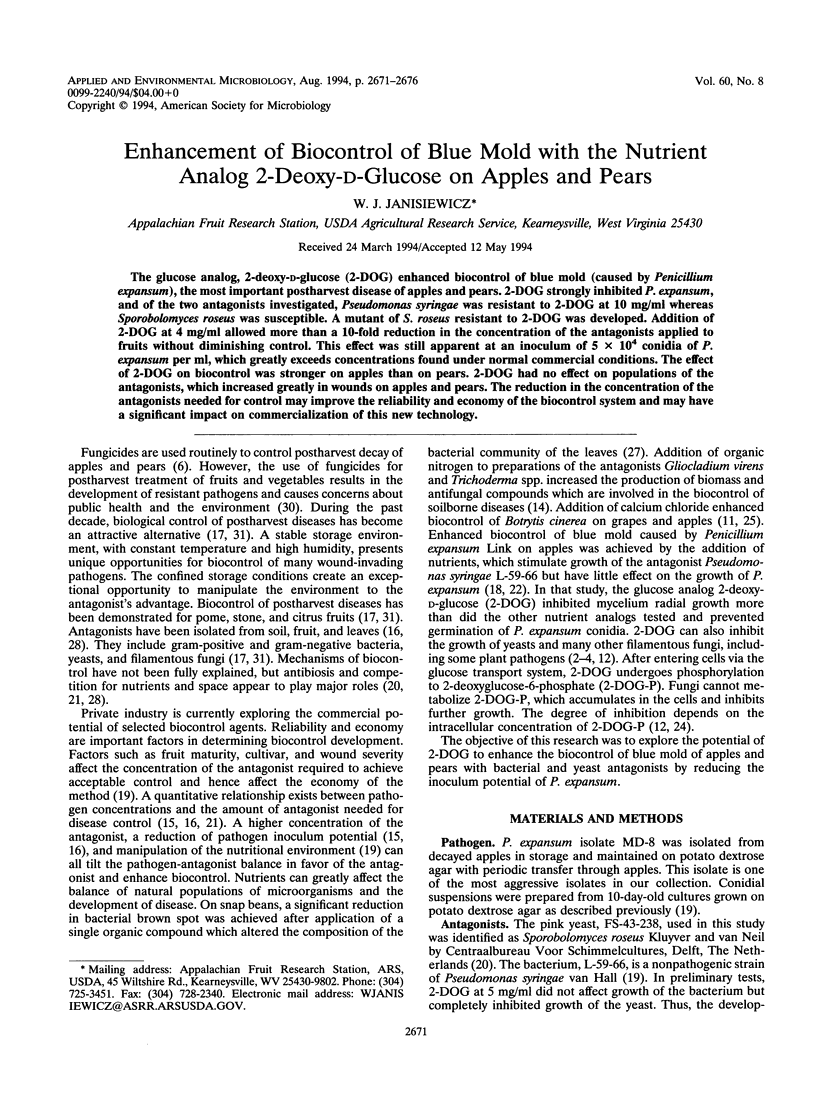
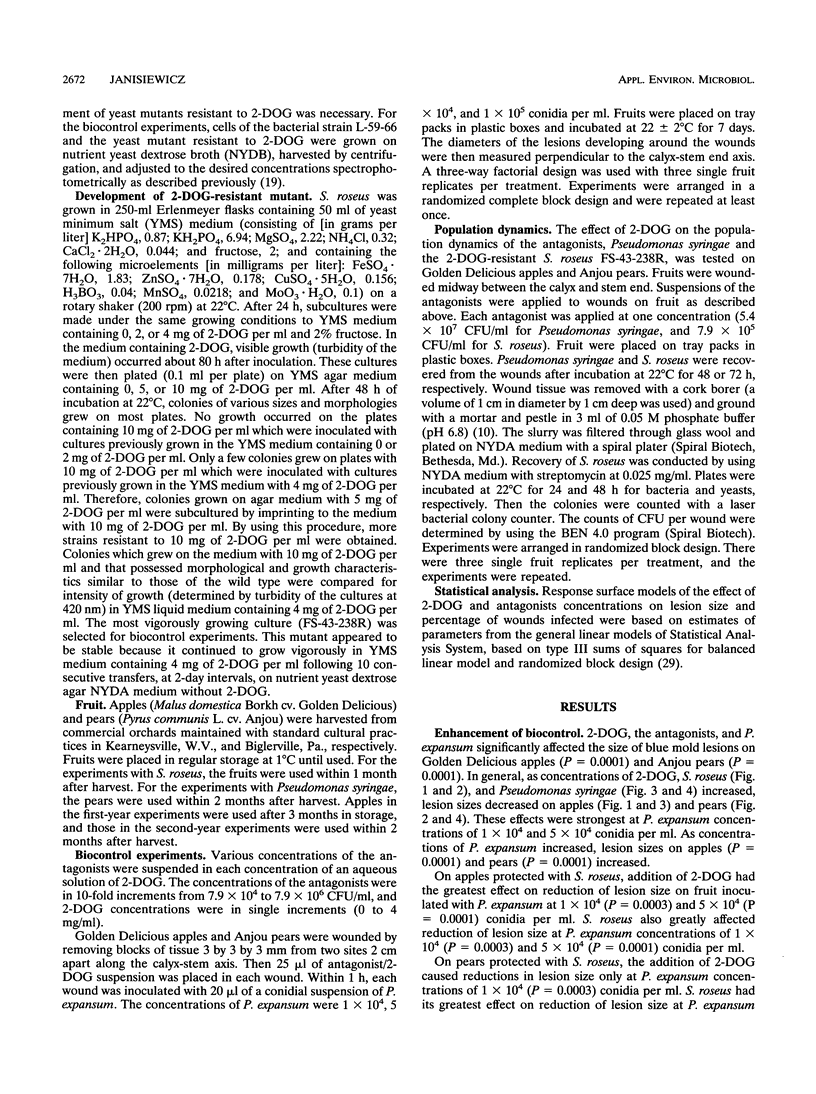
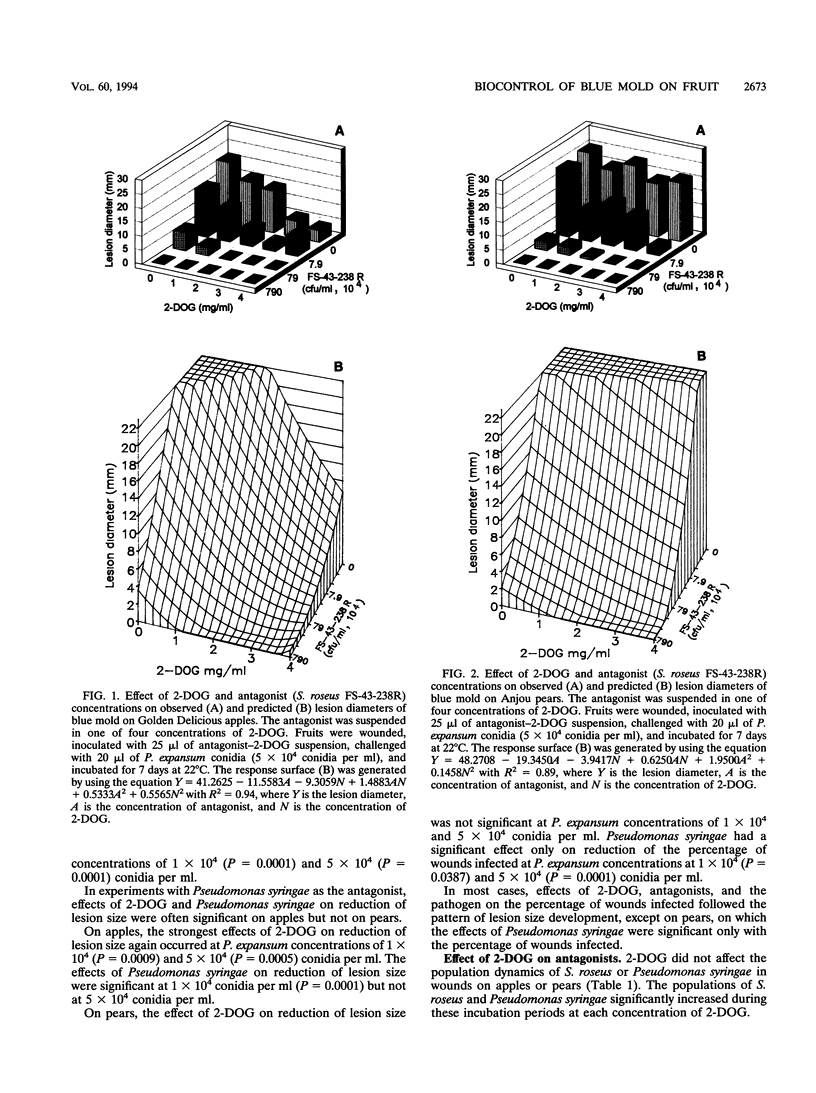
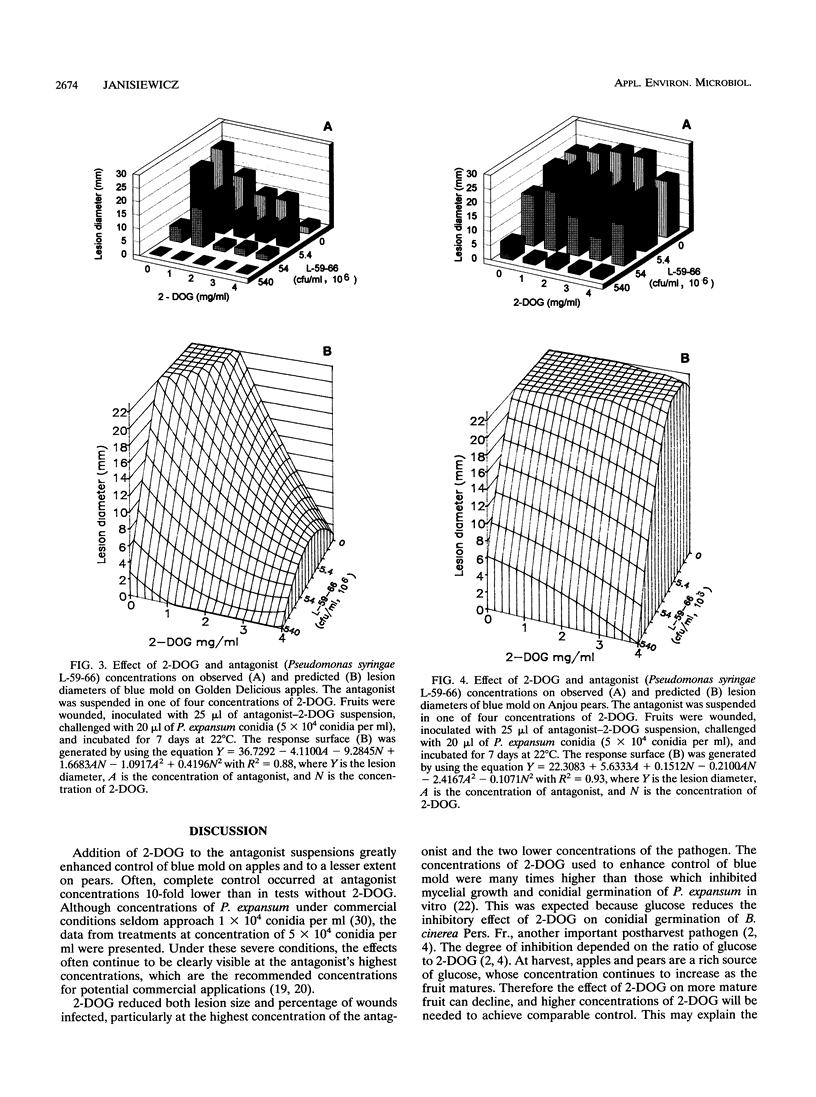
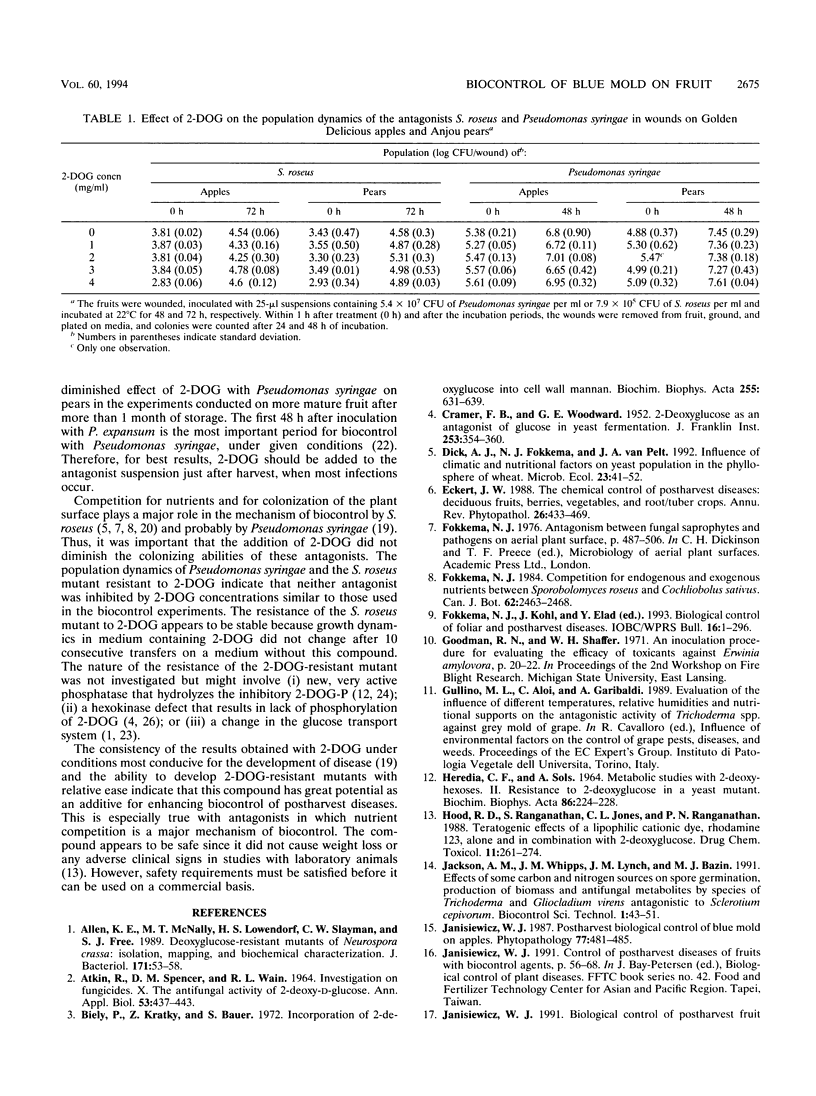
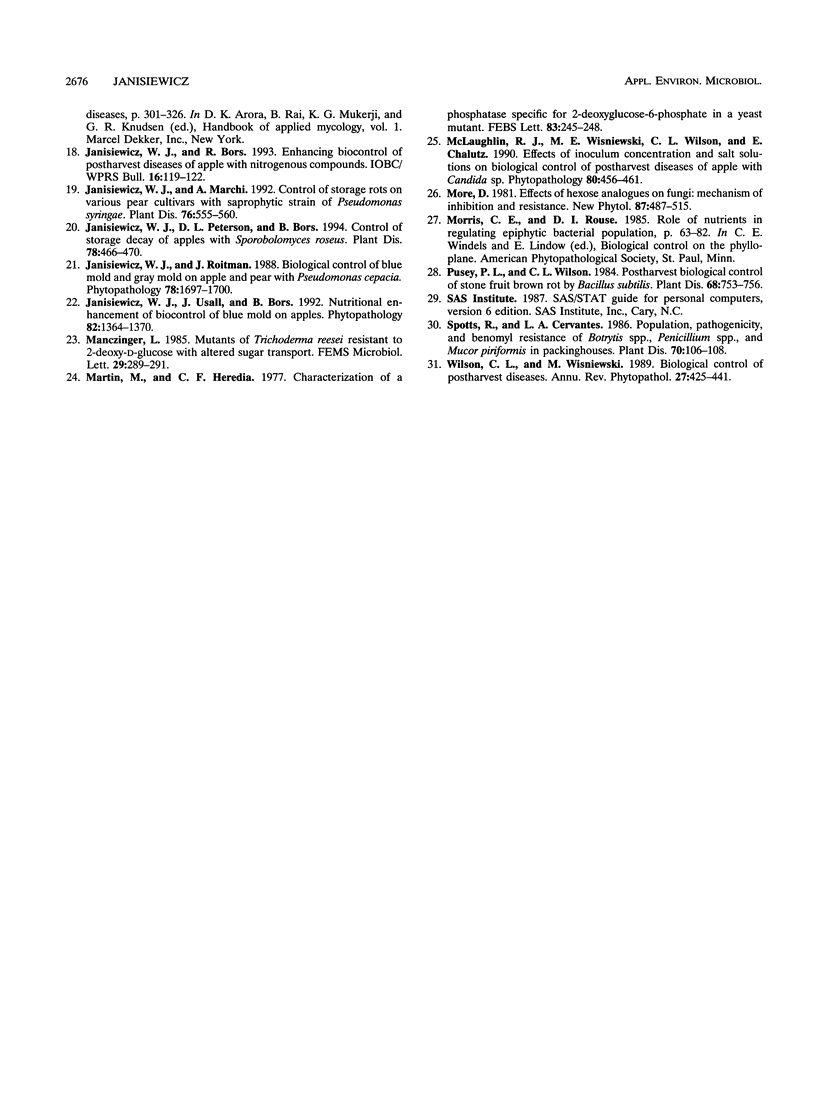
Selected References
These references are in PubMed. This may not be the complete list of references from this article.
- Allen K. E., McNally M. T., Lowendorf H. S., Slayman C. W., Free S. J. Deoxyglucose-resistant mutants of Neurospora crassa: isolation, mapping, and biochemical characterization. J Bacteriol. 1989 Jan;171(1):53–58. doi: 10.1128/jb.171.1.53-58.1989. [DOI] [PMC free article] [PubMed] [Google Scholar]
- Biely P., Krátký Z., Bauer S. Metabolism of 2-deoxy-D glucose by Baker's yeast. IV. Incorporation of 2-deoxy-D-glucose into cell wall mannan. Biochim Biophys Acta. 1972 Feb 11;255(2):631–639. doi: 10.1016/0005-2736(72)90166-6. [DOI] [PubMed] [Google Scholar]
- HEREDIA C. F., SOLS A. METABOLIC STUDIES WITH 2-DEOXYHEXOSES. II. RESISTANCE TO 2- DEOXYGLUCOSE IN A YEAST MUTANT. Biochim Biophys Acta. 1964 May 11;86:224–228. doi: 10.1016/0304-4165(64)90046-7. [DOI] [PubMed] [Google Scholar]
- Hood R. D., Ranganathan S., Jones C. L., Ranganathan P. N. Teratogenic effects of a lipophilic cationic dye rhodamine 123, alone and in combination with 2-deoxyglucose. Drug Chem Toxicol. 1988;11(3):261–274. doi: 10.3109/01480548809017882. [DOI] [PubMed] [Google Scholar]
- Martin M., Heredia C. F. Characterization of a phosphatase specific for 2-deoxyglucose-6-phosphate in a yeast mutant. FEBS Lett. 1977 Nov 15;83(2):245–248. doi: 10.1016/0014-5793(77)81014-4. [DOI] [PubMed] [Google Scholar]


